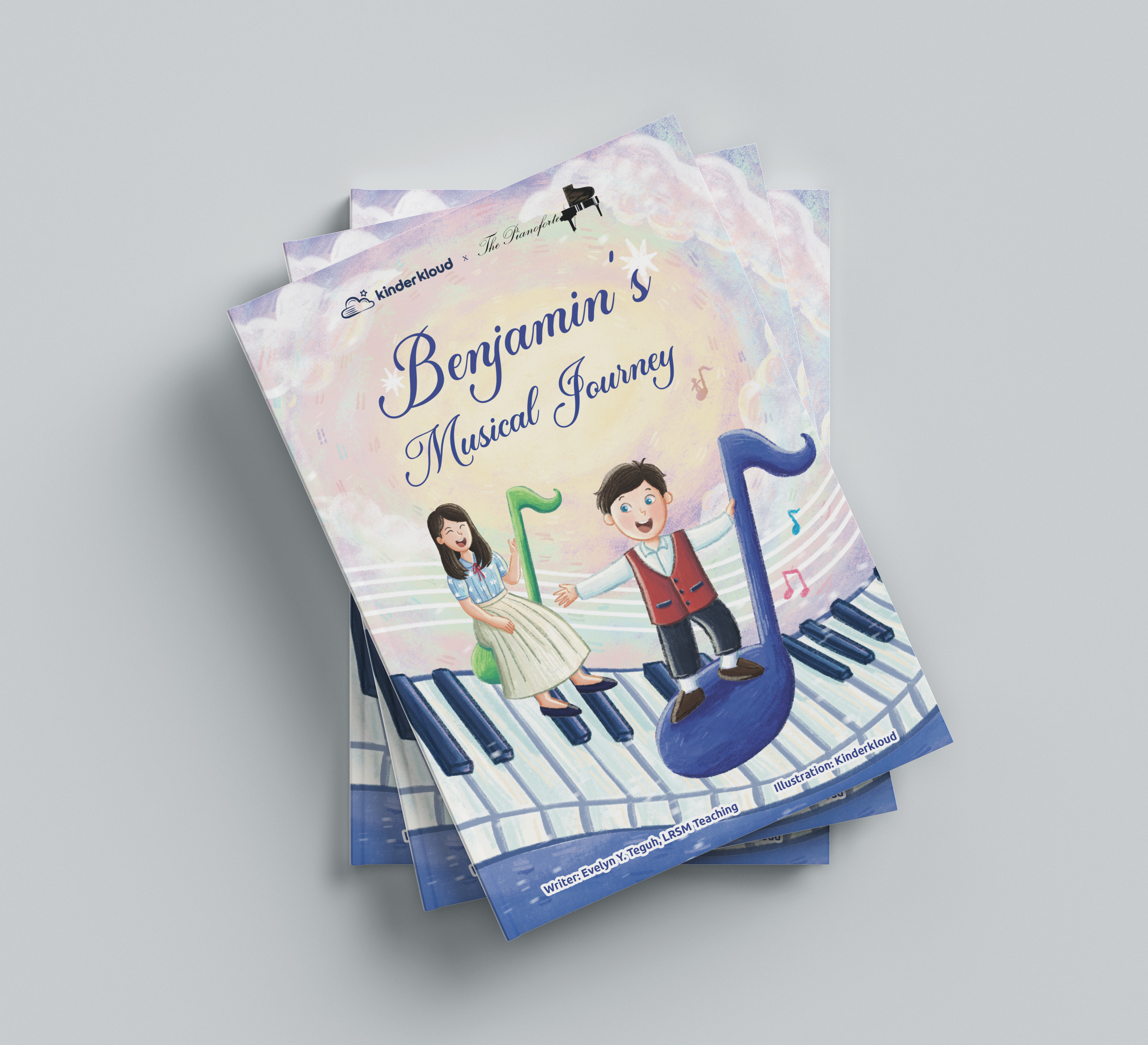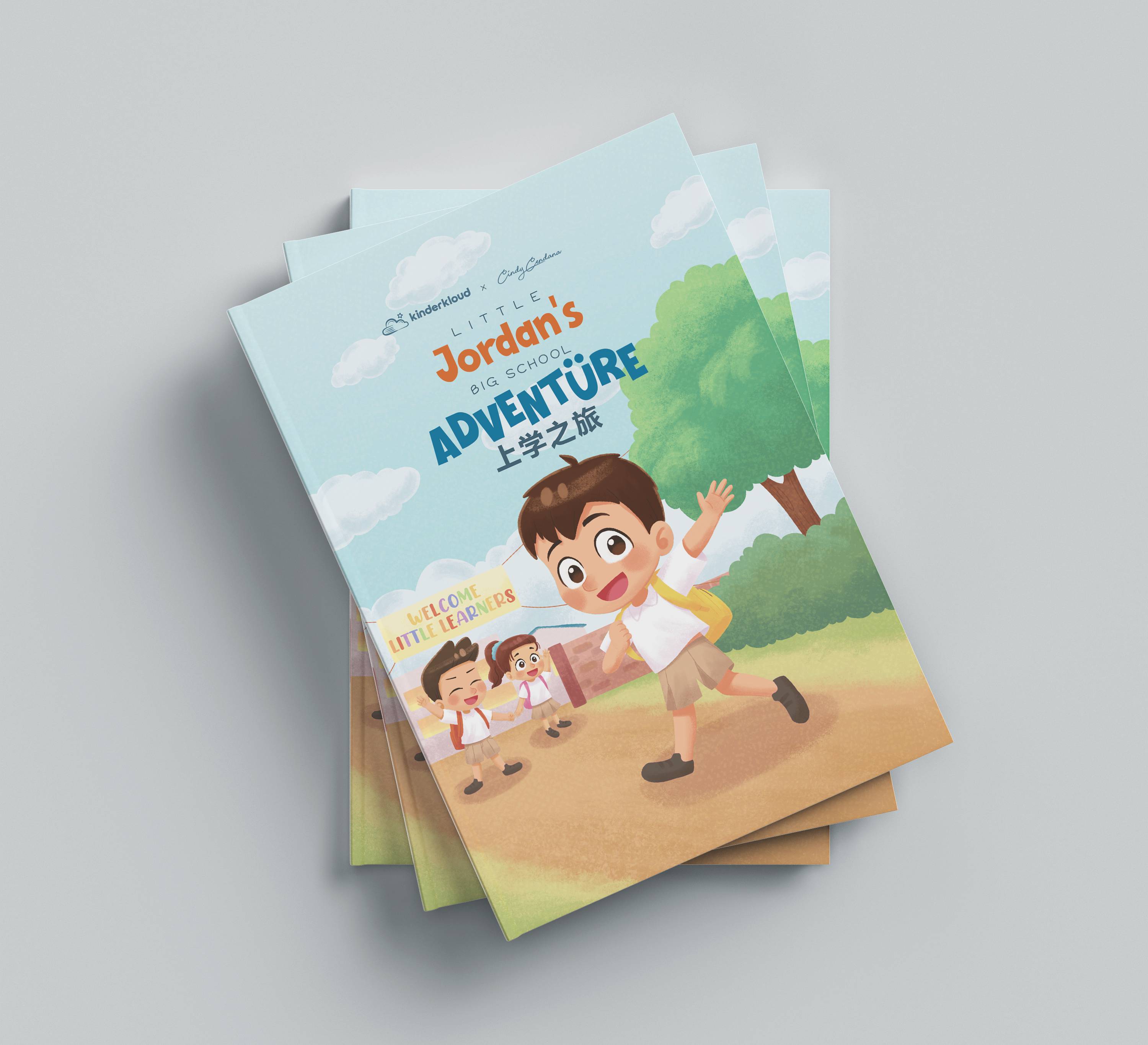Teaching Social-Emotional Skills Through Children Books

Socio-emotional ability plays an important role in children’s brain development, learning skills, and overall well being. Developing strong socio-emotional skills in the early years of children has been linked to many positive outcomes. For example, children with a good foundation of emotional development are known to have better social relationships and academic performances. Being aware of their own emotional state will help children develop strategies to regulate their emotions, navigate relationships, and solve problems more effectively.
However, children may struggle to understand or recognize emotions in others or themselves, so they need adult support. There are many ways to teach your child about emotions and social skills, one of them is through storytelling. Books or stories give children the opportunity to see things from different perspectives and experiences. Children can also learn to explore and identify what they are feeling at multiple settings, why they are feeling in a certain way, and how to cope with it. Research found that children who learn emotional and social skills by reading a book or storytelling can express their feelings and empathy, and have better relationships with peers.
So how do you teach emotions by reading books?
1. Choose the book
Emotions have a lot of range, it is not black and white and a person can experience a variety of feelings or emotions at the same time or express them in different ways. Therefore, it is important to choose a book which highlights or expresses multiple emotions in many ways and different settings. The book should also be adjusted to your child’s age, for example books which label feelings with emotion words and pictures might be more suitable for toddlers. In addition to labeling, older children or school-agers can read more complex books which teach them to respond and cope with their emotions.
2. Ask questions
Be interactive by asking questions while reading the book with your children. Open-ended questions are great prompts to help your children understand more about what they are reading. This is also a good way for your child to reflect on their own emotions. Here are some questions you can ask:
- What do you think the character is feeling now?
- What makes you think that? What do you see in them?
- Have you ever felt that way?
- What did the character do to help themself or make their problem smaller?
- Do you think that would help you if you were them?
- What did the other characters do to help?
- If you were in that situation, what would you do?
- If you were their friend, what advice would you give?
3. Give positive affirmations
As you are reading the book, tell your child that it is normal to feel certain emotions and make sure they know that all feelings are valid. You can point out the character’s emotions and say “It must have been really difficult for that character, I can understand why he/she felt that way, it is normal.” You might also want to share your past experiences when you felt a certain way and how you dealt with them.
4. Have fun!
Remember that this activity is more than just about learning, but it is also a time to bond and share special moments with your children. Don’t worry if your child can’t answer your questions, keep encouraging and give them understanding. Learning can be a lot easier when your child enjoys and is engaged in the activity.
References:
Feelings and books: Stories can teach more than words. (2019, January 29). Brighter Futures INDIANA. Retrieved February 9, 2023 from https://brighterfuturesindiana.org/blog/emotional-literacy-books-feelings-kids
How to teach social-emotional skills to preschoolers. (2021, April 7). Point University. Retrieved February 9, 2023 from https://online.point.edu/news/social-emotional-skills-for-preschoolers/
Learning social and emotional skills in pre-school. (n.d.). UNICEF. Retrieved February 9, 2023 from https://www.unicef.org/northmacedonia/learning-social-and-emotional-skills-pre-school
McCartney, T. (2016, February 25). Reading: Helping children to explore and develop their emotions through books. The Sydney Morning Herald. https://www.smh.com.au/entertainment/books/reading-helping-children-to-explore-and-develop-their-emotions-through-books-20160225-gn35mr.html
Reading books for social emotional development. (n.d.). Northern Lights Public School. Retrieved February 9, 2023 from https://www.nlpsab.ca/download/264950
Talking with preschoolers about emotions. (n.d.). PennState Extension. Retrieved February 9 2023 from http://bkc-od-media.vmhost.psu.edu/documents/TIPS1709.pdf
The social emotional benefits of reading with your child. (2021, January 29). Canadian International School of Phnom Penh. Retrieved February 9, 2023 from https://www.cisp.edu.kh/blog/the-social-emotional-benefits-of-reading-with-your-child/
By: Salma Safira Sukma Ikhsani, S.Psi. from BehaviorPALS
teaching, social, emotional, skills, children, book
Children 4 Years - 6 Years / 4 Tahun - 6 Tahun / Social Development / Tumbuh Kembang Sosial / Education / Pendidikan / Teaching Social-Emotional Skills Through Children Books
Comments















